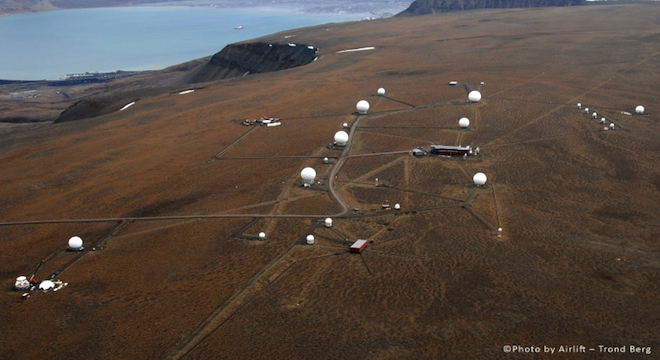The Chinese government and a Norwegian satellite station are hitting back at a Congressional advisory panel’s claims that they were players in the interference of two U.S. government satellites by hackers.
The claims that hackers targeted two U.S. earth-observation and imaging satellites, Terra AM-1 and Landsat-7, first appeared in a Bloomberg article published on October 27. The article is based on an unpublished draft of a forthcoming annual report to Congress from the U.S.-China Economic Relations Commission, an independent advisory panel.
NASA confirmed to TPM on Friday that the agency “experienced two suspicious events with the Terra spacecraft in the summer and fall of 2008,” but also added “there was no manipulation of data, no commands were successfully sent to the satellite, and no data was captured,” declining to elaborate further. NASA also declined to speculate on the origins or perpetrators of the attacks.
But the U.S.-China Economic Relations commission was more than okay with speculating.
According to Bloomberg draft report casts suspicion on someone connected to the Chinese military, noting that the four incidents of interference (two for each satellite), which took place between 2007 and 2008, allegedly bore qualities “consistent with Chinese military writings that advocate disabling an enemy’s space systems, and particularly “ground-based infrastructure, such as satellite control facilities.”
The Chinese government, though, vehemently denied that it had anything to do with the reported satellite hacking incidents, accusing the panel of having an ingrained bias against China and crying wolf.
“This commission always observes China through tainted glasses. The report is totally factitious, made with ulterior motives, and does not warrant refuting,” said Foreign Ministry spokesman Hong Lei on Monday, Chinese state news outlet Xinhua reported.
Another claim in the report draft, as explained by Bloomberg, concerns the alleged entry point of the hackers, the Svalbard Satellite Station in Spitsbergen, Norway, which is connected to the public Internet.
As Bloomberg noted, quoting the report: “The Landsat-7 and Terra AM-1 satellites utilize the commercially operated Svalbard Satellite Station in Spitsbergen, Norway that ‘routinely relies on the Internet for data access and file transfers,’ says the commission, quoting a NASA report. Hackers may have used that Internet connection to get into the ground station’s information systems, according to the draft.”
But the Svalbard Satellite Station’s commercial operator, Norwegian satellite company Kongsberg Satellite Services AS, has rebutted those claims as well.
In a lengthy statement emailed to TPM, Konsberg Satellite Services President Rolf Skatteboe told TPM that both the report and NASA’s claims were absolutely untrue.
“KSAT has not experienced any attempt to enter into the company’s systems from outside sources,” Skatteboe wrote. “We do not have any indication that hacking of satellites using KSAT Svalbard station has taken place. A careful screening of our security systems has not indicated any attempts to access SvalSat from unauthorized sources.”
His full statement continues:
Communication to and from NASA satellites is carried out on dedicated lines. They are entirely separated from the KSAT network. We have not received any message from NASA that their satellites were tried hacked.
Internet is occasionally used for distribution of x-band payload data received from the satellite to the end user. Hence, this communication channel is not an access point for hacking if it were to happened.
We can ensure our users that operational security is a high priority issue at KSAT. This applies to all our network stations. We have support from the relevant national authorities to regularly check Internet security. Details of these systems and their set up are not public domain information.
In addition, Skatteboe told TPM that his company had “not received any information from NASA that hacking has occurred.”
At this point, the only thing that will seemingly clarify the situation even slightly is the release of the panel’s report, which is due out November 17.









